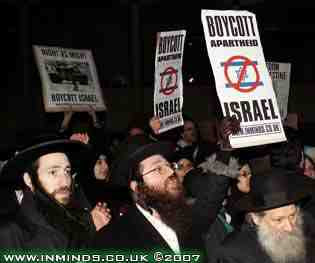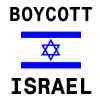df
df
df
df
df
df
df
df
df
df
df
df
df
Israel continues to experience the fall-out from their genocidal attack on Gaza. As the articles below demonstrate, the devastation wreaked upon Jabaliya refugee camp is worse than anyone can have imagined. The time for talk and appeasement has passed. As the Israeli peace camp grows weaker, with even the ‘left’ Zionist party Meretz supporting the attack on Gaza, those who support the ‘peace [i.e. war] process’ and talk of ‘2 States’ act as a cover for further barbaric attacks on the Palestinian people.
df
The proposals of the Scottish TUC are significant. If the Scottish TUC endorses the Report, then pressure will mount on the British TUC to start doing something more than mere talking. To date the British TUC has done nothing more than pay lip service to support for the Palestinians. Each year Brendan Barber, the TUC’s right-wing General Secretary, flits between the Trade Union Friends of Israel meeting at Congress to the Palestine Solidarity Campaign meeting in order to denounce the Boycott. Barber, another in a line of useless time-servers that the TUC appoints to lead it, speaks instead of ‘2 States’, knowing full well that if it was ever possible in the past, the growth of the settlements and a far-right Government in Israel, led by its fascist Foreign Minister Lieberman, means that even the possibility of a Palestinian Bantustan is a pipe-dream.
Those who talks of 2 States and Israel’s ‘right to exist’ are really talking about Israel’s right to continue its wars of expansion and transfer. Because 2 States is a Transfer Solution.
The 2 articles from the Guardian are extremely encouraging as they shows that the consumer boycott of Israeli goods is beginning to bite, especially in the UK, as ordinary people think twice about buying produce stained with the blood of Palestinians.
It is particularly gratifying that Britain is seen as “a special problem’ in respect of the Boycott! And the criticism by Nehemia Stressler and Israeli manufacturers of Israel’s Government for its bombardment, because of its effect on exports, gives the lie to those who say Boycotts don’t work. On the contrary, appeasement and sweet talk doesn’t work and never has worked. The only thing that Zionism and its representatives understand is the language they employ in respect of the Gazan population, who have been subjected to a forcible boycott for over 3 years. BOYCOTT WORKS!!!
Tony Greenstein
Israeli exporters are hit by European boycotts
Rachel Shabi Tel Aviv, The Guardian, 4th April 2009
Israeli companies are feeling the impact of boycott moves in Europe, according to surveys, amid growing concern within the Israeli business sector over organised campaigns following the attack on Gaza.
df
Last week, the Israel Manufacturers Association reported that 21% of 90 local exporters who were questioned had felt a drop in demand due to boycotts, mostly from the UK and Scandinavian countries. Last month, a report from the Israel Export Institute reported that 10% of 400 polled exporters received order cancellation notices this year because of Israel’s assault on Gaza.
“There is no doubt that a red light has been switched on, ” Dan Katrivas, head of the foreign trade department at the Israel Manufacturers Association, told the Maariv newspaper this week.
“We are closely following what’s happening with exporters who are running into problems with boycotts. ” He added that in Britain there exists “a special problem regarding the export of agricultural produce from Israel”.
The problem, said Katrivas, is in part the discussion in the UK over labelling goods that come from Jewish settlements in the occupied West Bank. Last week British government officials met with food industry representatives to discuss the issue.
In recent months, the Israeli financial press has reported the impact of mounting calls to boycott goods from the Jewish state. Writing in the daily finance paper, the Marker, economics journalist Nehemia Stressler berated then trade and Industry minister Eli Yishai for telling the Israeli army to “destroy one hundred homes” in Gaza for every rocket fired into Israel.
The minister, wrote Stressler, did not understand “how much the operation in Gaza is hurting the economy”.
Stressler added: “The horrific images on TV and the statements of politicians in Europe and Turkey are changing the behaviour of consumers, businessmen and potential investors. “
In February, another article in the Marker reported that Israelis with major business interests in Turkey hoped to remain anonymous to avoid arousing the attention of pro-boycott groups.
The paper said that, while trade difficulties with Turkey during the Gaza assault received more media attention, Britain was in reality of greater concern.
Gil Erez, Israel’s commercial attache in London, told the paper: “
Organisations are bombarding [British] retailers with letters, asking that they remove Israeli merchandise from the shelves. “
Finance journalists have reported that Israeli hi-tech, food and agribusiness companies suffered consequences following Israel’s three-week assault on Gaza, and called for government intervention to protect businesses from a growing boycott.
However, analysts stressed that the impact of a boycott on local exporters was difficult to discern amidst a global economic crisis. “If there was something serious, I would have heard about it, ” said Avi Tempkin, from Globes, the Israeli business daily.
fg
Consumer boycotts in Europe have targeted food produce such as Israeli oranges, avocados and herbs, while in Turkey the focus has been on agribusiness products such as pesticides and fertilisers. The bulk of Israeli export is in components, especially hi-tech products such as Intel chips and flashcards for mobile phones. It is thought that the consumer goods targeted by boycott campaigns represent around 3-5% of the Israeli export economy.
Scottish TUC Delegation Calls for Boycott, Disinvestment & Sanctions
The Scottish Trade Union Congress’s (STUC) delegation to Palestine finally issued its
report:
df
They met with many Israeli officials and TU officers, as well as with PGFTU, Birzeit University staff, the BDS National Committee, PA officials, a women’s union, among others. The PGFTU’s message throughout the report is not helpful, to say the least, as far as BDS is concerned; but at least they did not speak against BDS and even acknowledged that BDS is very popular among Palestinians.
Despite all the typical Israeli misinformation and propaganda that were fed to the delegation, they did not wash. The delegation saw the truth at checkpoints, during visits to the Wall, from stories or ordinary Palestinian children, men and women who suffer under occupation, and they heard a loud voice from Palestinian society calling for BDS. As a result, the report is recommending that STUC in its upcoming Congress approve BDS against Israel!! (See excerpts below)
df
The Israel Lobby will now go into full gear to prevent this from happening, at all costs. Like us, they know fully the significance of such a motion passing.
If STUC passes a pro BDS motion, they will become the first TU federation in Europe to do so and the second in the world, after COSATU. Truly historic prospects.
Omar
Here are the main recommendations in the report:
In the light of what we witnessed and heard in our meetings in Israel and the Occupied Territories, it is the delegation’s view that the General Council should recommend to the Annual Congress the need to take a position of supporting boycott and disinvestments, and calling for sanctions against Israel because of the Israeli state’s violation of human rights.
The delegation also wishes to encourage positive investments in the occupied territories, and greater dialogue to build solidarity and understanding of the situation facing Palestinians. The delegation recognises that it is vital to take forward more work on this campaign, to raise greater awareness of all of these issues, to make any BDS campaign meaningful for trade union members in Scotland, and appropriate for their own workplace situations.
A fifth of Israeli exporters report drop in demand as footage of Gaza attacks changes behaviour of consumers and investors
Rachel Shabi, in Tel Aviv, Friday 3 April 2009 16.16
Israeli companies are feeling the impact of boycott moves in Europe,according to surveys, amid growing concern within the Israeli businesssector over organised campaigns following the recent attack on Gaza.
Last week, the Israel Manufacturers Association reported that 21% of 90 local exporters who were questioned had felt a drop in demand due to boycotts, mostly from the UK and Scandinavian countries.
Last month, areport from the Israel Export Institute reported that 10% of 400 polledexporters received order cancellation notices this year, because of Israel’s assault on Gaza.
“There is no doubt that a red light has been switched on,” Dan Katrivas, head of the foreign trade department at the Israel Manufacturers Association, told Maariv newspaper this week.
“We are closely following what’s happening with exporters who are running into problems with boycotts.” He added that in Britain there exists “a special problem regarding the export of agricultural produce from Israel”.
The problem, said Katrivas, is in part the discussion in the UK over how to label goods that come from Jewish settlements in the occupied West Bank.Last week British government officials met with food industry representatives to discuss the issue.
In recent months, the Israeli financial press has reported the impact of mounting calls to boycott goods from the Jewish state. Writing in the daily finance paper, the Marker, economics journalist Nehemia Stressler berated then trade and industry minister Eli Yishai for telling the Israeli army to “destroy one hundred homes” in Gaza for every rocket fired into Israel.
The minister, wrote Stressler, did not understand “how much the operation in Gaza is hurting the economy”.
Stressler added: “The horrific images on TV and the statements of politicians in Europe and Turkey are changing the behaviour of consumers, businessmen and potential investors. Many European consumers boycott Israeli products in practice.
“He quoted a pepper grower who spoke of “a concealed boycott of Israeliproducts in Europe”.
In February, another article in the Marker, titled “Now heads are lowered as we wait for the storm to blow over”, reported that Israelis with major business interests in Turkey hoped to remain anonymous to avoid arousing the attention of pro-boycott groups.
The paper said that, while trade difficulties with Turkey during the Gazaassault received more media attention, Britain was in reality of greater concern.
Gil Erez, Israel’s commercial attache in London, told the paper: “Organisations are bombarding [British] retailers with letters, asking that they remove Israeli merchandise from the shelves.”
Finance journalists have reported that Israeli hi-tech, food and agribusiness companies suffered adverse consequences following Israel’s three-week assault on Gaza, and called for government intervention toprotect businesses from a growing boycott.
However, analysts stressed that the impact of a boycott on local exporters was difficult to discern amidst a global economic crisis and that such effects could be exaggerated.
“If there was something serious, I would have heard about it,” said Avi Tempkin, from Globes, the Israeli business daily.
Israeli companies are thought to be wary of giving credence to boycott efforts by talking openly about their effect, preferring to resolve problems through diplomatic channels.
Consumer boycotts in Europe have targeted food produce such as Israeli oranges, avocados and herbs, while in Turkey the focus has been on agribusiness products such as pesticides and fertilisers.
The bulk of Israeli export is in components, especially hi-tech products such as Intel chips and flashcards for mobile phones. It is thought that the consumer goods targeted by boycott campaigns represent around 3% to 5% of the Israeli export economy.



